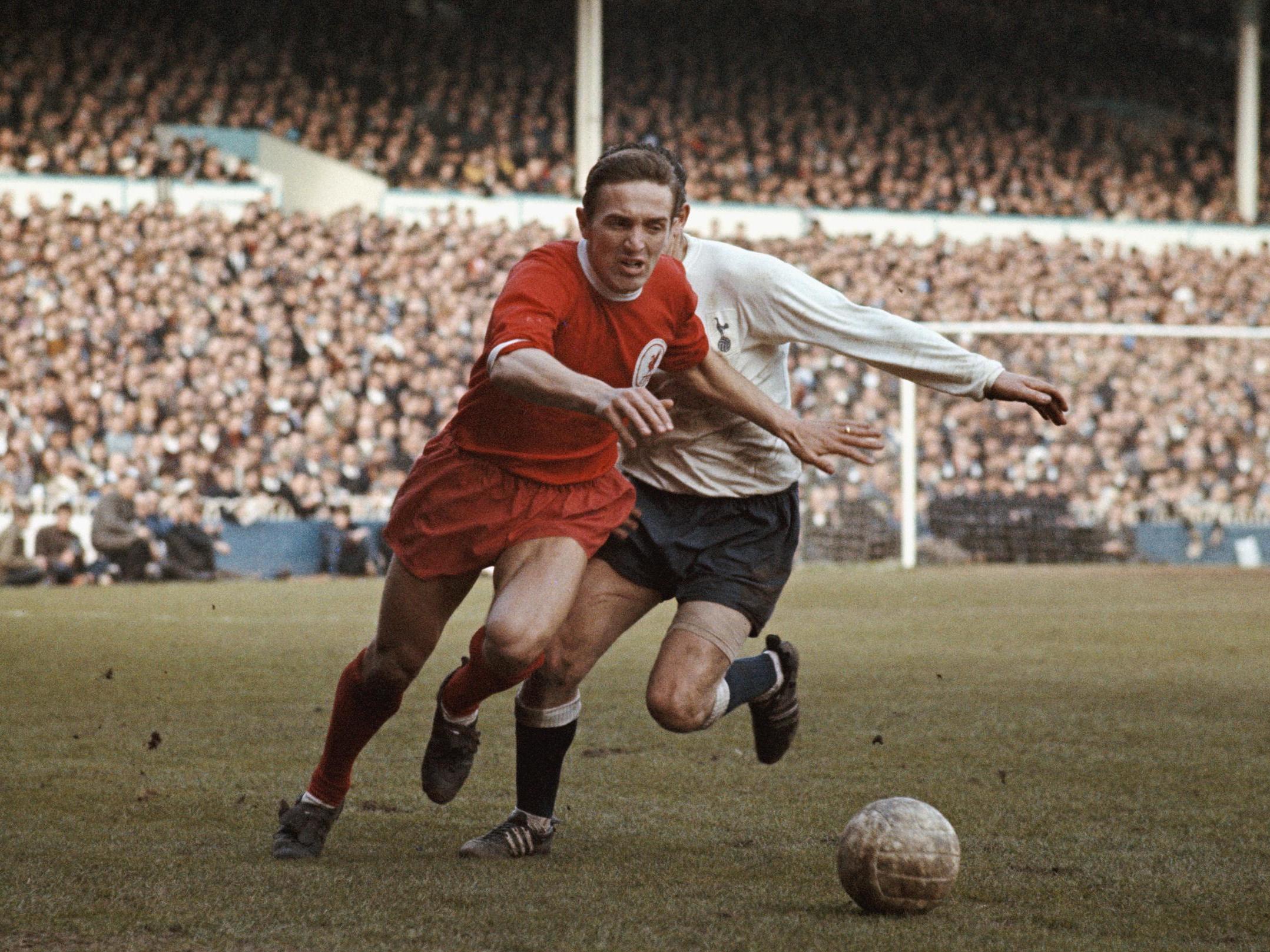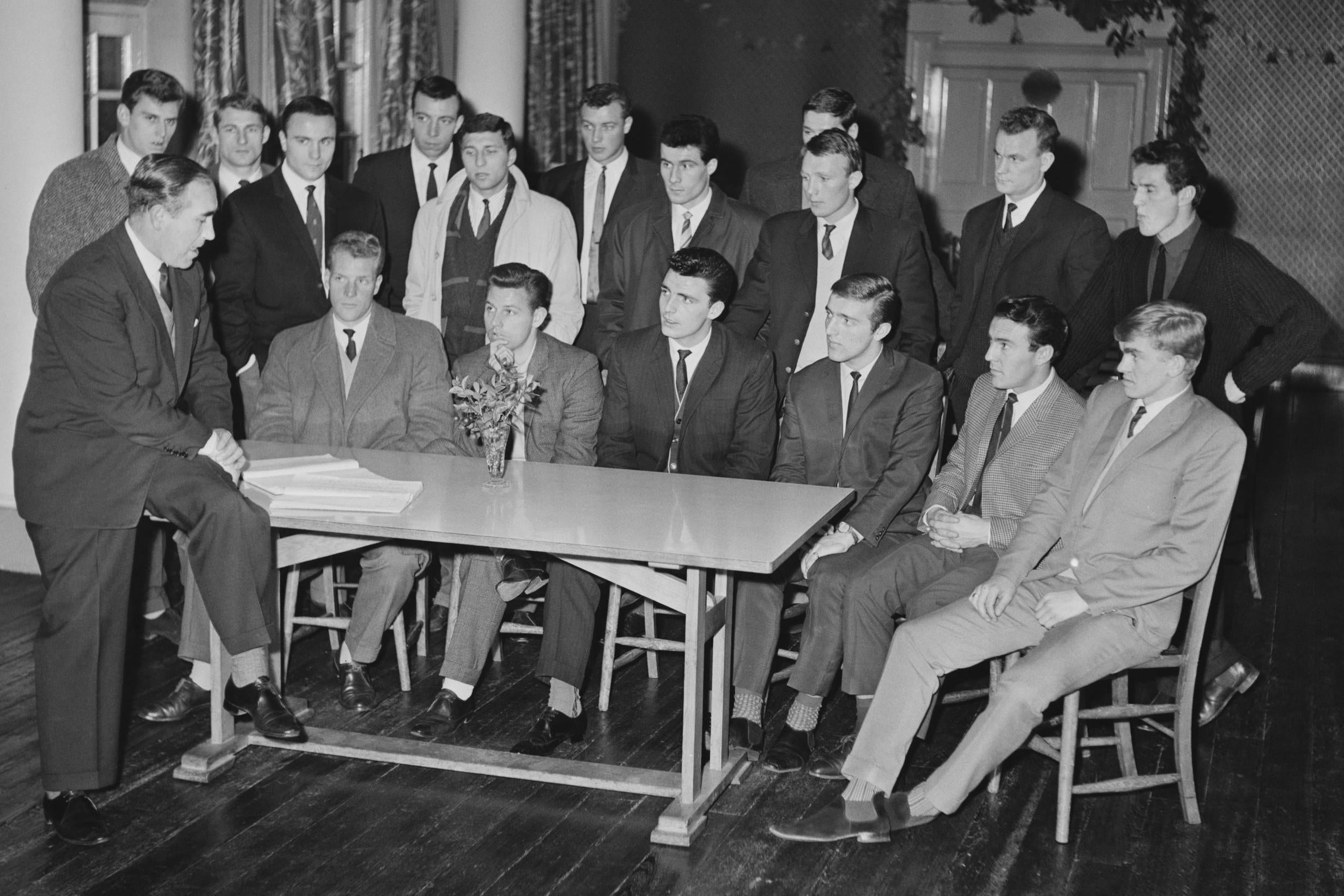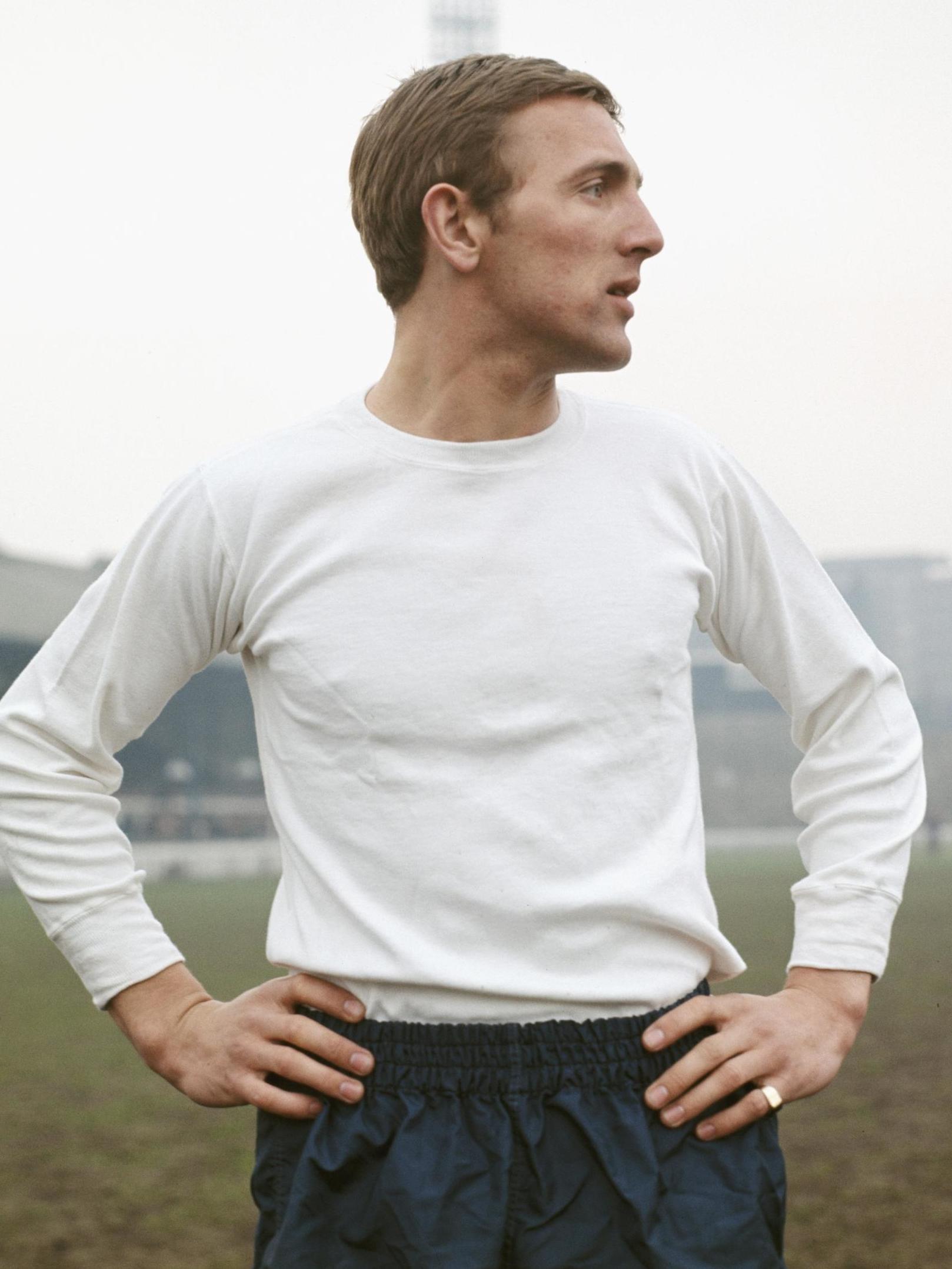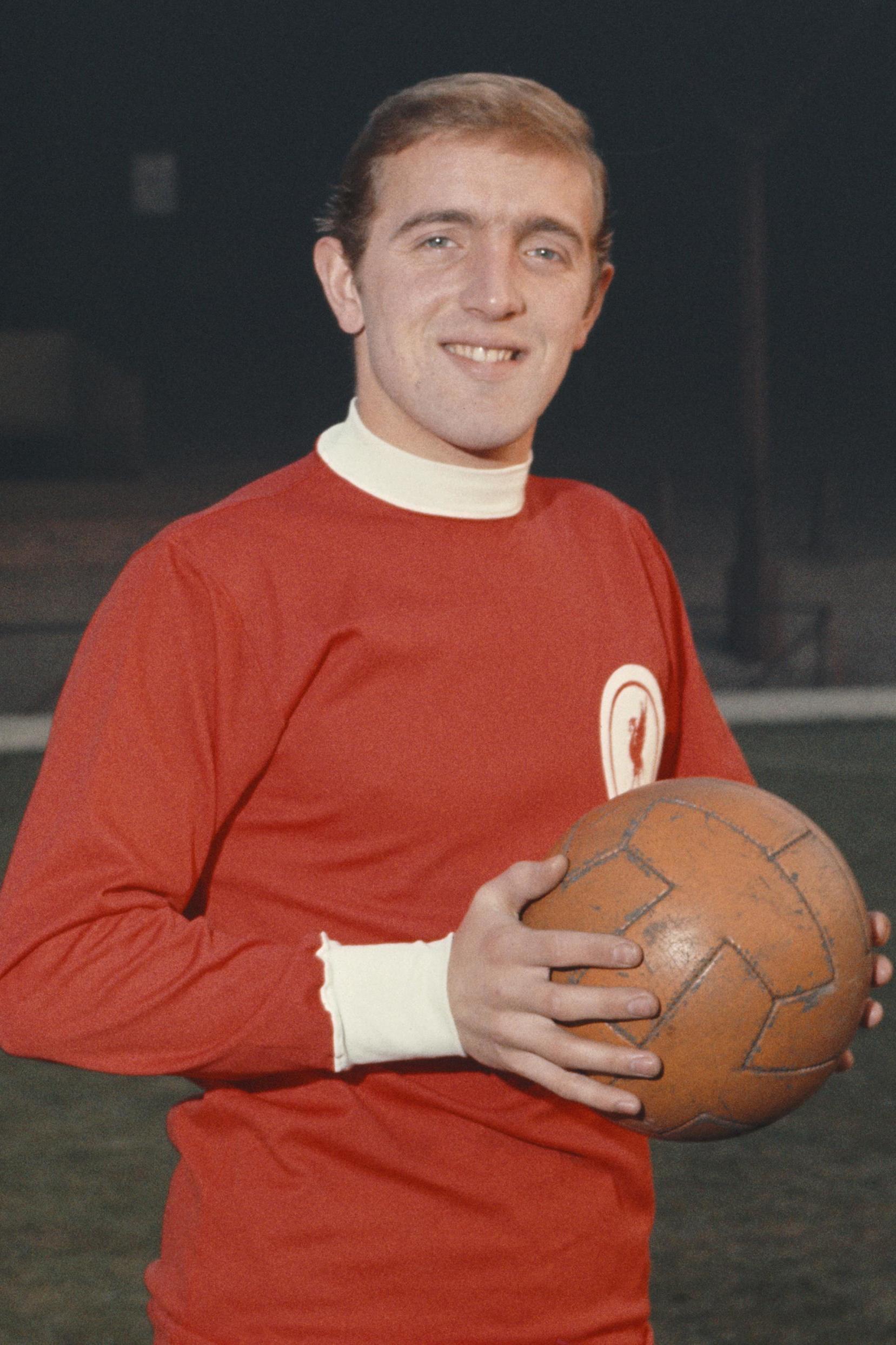Peter Thompson: England and Liverpool footballer who starred in first great Shankly era
Though missing out on the 1966 and 1970 World Cup squads, Thompson won two league titles and the Anfield club’s first ever FA Cup

Wingers usually belonged to one of two categories in 1960s football – the type who pushed the ball beyond his full-back before sprinting past him, and the kind that used cunning and skill to leave rivals feeling as if they had twisted blood.
Peter Thompson was a thrilling exponent of both styles.
Thompson, who died suddenly at the age of 76, sparkled on the left flank during Liverpool’s era of dominance under the management of Bill Shankly, winning two Football League championship medals and another in the FA Cup. He also earned 16 caps for England despite Sir Alf Ramsey’s increasing preference for grafting midfielders in wide positions.
In both 1966, when England won the World Cup with a side who were often hailed as Ramsey’s “wingless wonders”, and 1970, Thompson was named in the provisional squad of 28 players ahead of the finals. On each occasion Ramsey left him out of the 22 for the tournament.

Shankly remained faithful to him until the midway point of the 1970-71 season, by which time the pace and trickery were showing signs of waning. But the legendary Liverpool manager nominated Thompson among the greats of post-war wing-play in the programme for his former player’s testimonial match in 1978.
“His work-rate was outstanding, his fitness unequalled, his balance like a ballet dancer’s,” said Shankly. “I have no hesitation in placing Peter among the all-time greats – alongside players such as Tom Finney, Stanley Matthews and George Best.” He saw Thompson as an athlete with Olympian attributes who could “run forever”, adding: “More importantly, he could run with the ball – probably the hardest thing to do in football.”
Born and raised in Carlisle, Thompson became a coveted schoolboy player operating as an inside-forward. Preston North End, having lost the irreplaceable Tom Finney to retirement, won the tussle to sign him and “the new Finney” made his First Division debut against Arsenal aged 17 at the start of the 1960-61 season.

The campaign ended with Preston suffering relegation from the top flight. Thompson then played for two seasons in the old Second Division and caught Shankly’s eye in an FA Cup tie against Liverpool in 1962. It went to a second replay at Old Trafford which Thompson’s goal settled in the underdogs’ favour. Years later he quipped: “Shanks thought he’d signed a goalscorer!” The following year the Scot paid a club-record £40,000 to bring him to Anfield after Preston spurned interest from Juventus, Everton and Wolves.
Liverpool’s respectable eighth-place finish had been rendered unacceptable by the sight of neighbouring Everton at the pinnacle of the English game. The right-footed Thompson, playing on the left and adding the ability to cut inside on to his right to his other qualities, would have a major role in tilting the balance of power. He appeared in all 42 league matches in his first season, 1963-64, which culminated in Liverpool routing Arsenal 5-0. Thompson scored twice as they claimed a first championship in 17 years before a delirious Kop.

The trophies kept coming – the Cup for the first time in Liverpool’s history in 1965, after Thompson’s goal set them on their way to semi-final victory over Chelsea, the League again in 1966 when he missed only two games – with “Tommo” and fellow England winger Ian Callaghan providing the ammunition for Roger Hunt and Ian St John.
Steve Heighway’s emergence in the autumn of 1970 signalled the beginning of the end for Thompson’s rampages in red. He appeared as substitute in the 1971 FA Cup final, helping create the goal Heighway netted against eventual winners Arsenal, but became a peripheral figure, nursing various knee injuries, before Bolton bought him for £18,000 in early 1974.
He was part of the Bolton team that won the Second Division in 1977-78, after which he retired with 560 league appearances (63 goals) to his name, 426 (54) of them with Liverpool. After football he ran a caravan park at Morecambe Bay and a hotel in Harrogate with his wife Debbie before going to live in Portugal.
Coincidentally, Portugal provided the opposition in 1964 when Thompson won the first of his England caps, spread over six years, in a 4-3 victory in Lisbon. Bob Paisley, Shankly’s successor, said he would have represented his country many more times had he possessed “a bit more venom” and been “less nice and even-tempered”. His wing partner Callaghan nevertheless marked his death by describing him as “a really special player”.
Peter Thompson, footballer, born 27 November 1942, died the weekend of 29/30 December 2018
Join our commenting forum
Join thought-provoking conversations, follow other Independent readers and see their replies
Comments
Bookmark popover
Removed from bookmarks